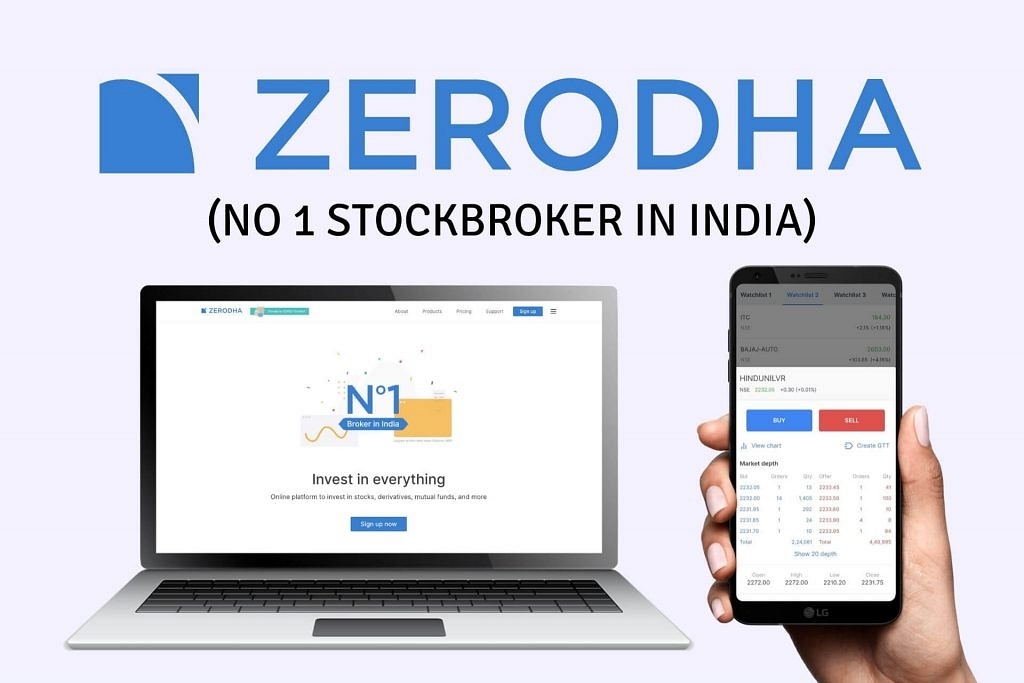Business
What Is Zerodha? The Company Whose Founders Had To Clarify That They Are Not Actually Drawing Salary Of Rs 100 Crore
- With more than 5 million active users, this company has become India’s largest retail stockbroking platform which is managing almost 15 per cent of all trading volume in the country.

Zerodha
India’s largest stock brokerage firm, Zerodha, started its journey in 2010 to make trading barrier-free and impose lower costs on the customers.
The Bengaluru-based Zerodha, which is a member of NSE, BSE, MCX, MCX-SX and gives brokerage services to stock market traders, was founded by two brothers—Nithin and Nikhil Kamath.
On 30 May, Nithin Kamath said in a Twitter thread that the company’s profit has more than doubled to Rs 1,000 crore in the last financial year (FY21).
He wrote: “A portion of the profits allocated for the buyback every year. This year it is ~ Rs 200 crores. Our PAT for FY 20/21 ~Rs 1000 crores( similar to bank brokers).”
The company recently has been in the news after Zerodha’s board approved a resolution to allow promoters of the firm—founder brothers and Nithin’s wife Seema Patil—to draw a salary of Rs 100 crore.
But as per Nithin Kamath, it was “misinterpreted.”
In the series of tweets, he explained that the Rs 100 crore salaries were not an absolute figure, rather, an enabling resolution.
Nithin Kamath said in one tweet: “Firstly the reported figure isn’t the actual salary being drawn. This is an enabling resolution that allows us as working promoters to draw salaries up to the number in case of liquidity requirements.”
“Didn’t anticipate that this would get this much attention,” he added.
The board passed a special resolution, which says that all three will get a basic salary of Rs 4.17 crore each month, along with allowances that add up to Rs 300 crore per annum as salary.
“While the actual salary will be lower, it will still be high compared to the norm. Promoters don't take out profits through salaries as it is tax-inefficient, you end up almost paying 50 per cent in taxes,” Nithin Kamath tweeted.
However, before Zerodha formally claimed unicorn status in 2020, the company had turned a ‘profi-corn’—a firm that is profitable, privately held, promoter-funded and has a reasonable valuation.
The company is now valued at 3 billion dollars in the Hurun Global Unicorn List of 2020.
With more than 5 million active users, this company has become India’s largest retail stockbroking platform which is managing almost 15 per cent of all trading volume in the country.
Last year, Zerodha has seen massive traction on its platform Kite, as millions of retail stock traders drawn by a turbulent stock market, opened their Demat accounts—which provides the facility of holding shares and securities in an electronic format—with this Bengaluru-based firm.
Nithin Kamath told The Economic Times on 28 May: “In our business, if markets do well, we do well too.”
“But the market is overvalued and we have to be prepared for when the bubble bursts,” he added.
When Zerodha entered the market almost 11 years ago, it brought many firsts in India's broking industry.
It became India’s first “discount brokerage” company that doesn’t offer research services to its clients, such as buy or sell recommendations.
Over the years, Zerodha—a name which comes from two words “zero” and “rodha”, the latter means obstructions in Sanskrit—used technology to differentiate itself.
According to the company’s website: “Our disruptive pricing models and in-house technology have made us the biggest stockbroker in India in terms of active retail clients.”
The company, which kicked off with a team of five people, now also runs several popular open online educational and community initiatives to empower retail traders and investors.
After achieving incredible growth during the Covid-19 pandemic, the further goal of Zerodha is to add more new investors to the stock market in India with the help of the platform.
Introducing ElectionsHQ + 50 Ground Reports Project
The 2024 elections might seem easy to guess, but there are some important questions that shouldn't be missed.
Do freebies still sway voters? Do people prioritise infrastructure when voting? How will Punjab vote?
The answers to these questions provide great insights into where we, as a country, are headed in the years to come.
Swarajya is starting a project with an aim to do 50 solid ground stories and a smart commentary service on WhatsApp, a one-of-a-kind. We'd love your support during this election season.
Click below to contribute.
Latest